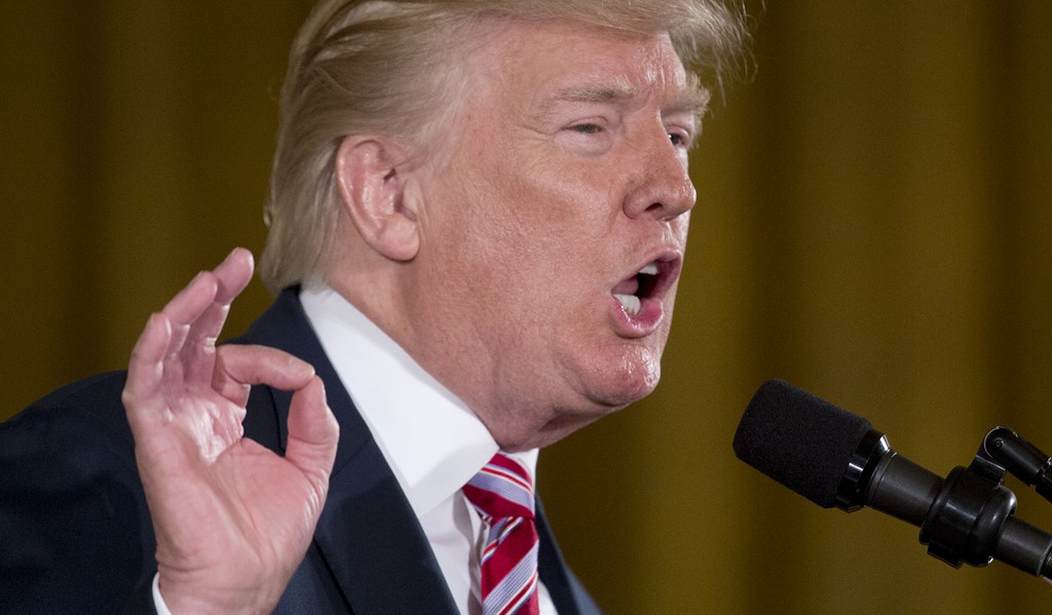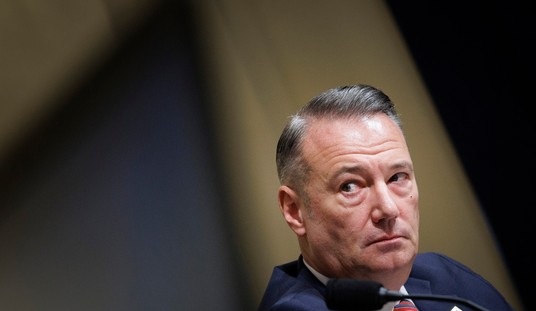Did Donald Trump help arrange the isolation of Qatar from the Sunni nations in the Middle East? In a series of tweets this morning, Trump took credit for what he called the center of “funding for Radical Ideology.” That may raise a few eyebrows in Doha, as well as a few questions in Washington:
https://twitter.com/realDonaldTrump/status/872062159789985792
https://twitter.com/realDonaldTrump/status/872084870620520448
https://twitter.com/realDonaldTrump/status/872086906804240384
Do terrorist networks operate and fundraise in Qatar? Of course, but that’s been well known for some time, and it’s worked at times to some advantage — although perhaps not everyone has been enthusiastic about it. The US worked with the political wing of the Taliban in Qatar to make the Bowe Bergdahl swap, for instance, and Qatar guaranteed that the five Taliban commanders released would not go back into the war for at least a year. Qatar also hosted direct Taliban talks when the Obama administration looked for a negotiated end to the war in Afghanistan … for all the good it did. Qatar also ended up pressuring Hamas to end its war with Israel in 2014, although not without a lot of cajoling from the US and others, and not without encouraging it first — which may be one of the starting points for this week’s diplomatic crisis, especially with Egypt.
However, there’s something else in Qatar besides the “wretched hive of villainy” comprised of various Islamist terror groups … CENTCOM. The joint military organization covers the Middle East and has its forward command centers for special ops (SOCCENT) and Air Forces (AFCENT) based in Qatar. (The Army’s forward base is in Kuwait, and the Navy’s is in Bahrain.) While the US has expressed its concern over Qatar’s ties to terror groups over the years, it has also stepped a little more cautiously in terms of public diplomacy.
Having the president brag about cutting off Qatar’s food and other resources might have a wee impact on our ability to maintain those bases, no? It’s one thing to have the appearance of hostility toward one’s hosts for critical military operations, but it’s another to rub their noses directly in it. If the Trump administration was this concerned about the Qatari funding for terror groups, shouldn’t we have relocated CENTCOM’s operations first?
Trump’s tweets contrasted with the cautious tone taken the day before by Rex Tillerson:
Qatar hosts the largest U.S. military base in the entire a Middle East — the Al Udeid Air Base — a facility that serves as the regional headquarters for U.S. Central Command as well as the center for American-led operations against ISIS.
The U.S. also has a huge base in Bahrain, which hosts the U.S. Naval Forces Central Command headquarters and the Navy’s Fifth Fleet.
Trump’s comments mark a notable departure from the sensitive tone struck a day earlier by Secretary of State Rex Tillerson, who encouraged “all parties to sit down together and address (their) differences.”
So, all of that aside. … did Trump actually have the impact he claims? The Washington Post’s Ishaan Tharoor is mostly critical of Trump, but does concede that Trump was at least the catalyst:
For years now, officials in Riyadh and Abu Dhabi have been angry over what they perceive to be Qatar’s rogue, activist foreign policy. Unlike neighboring Bahrain, for example, which largely toes the Saudi line, Qatar has diverged from other members in the Gulf Cooperation Council, a bloc of six Arab monarchies, and used its vast coffers to project its own influence far and wide.
After the political upheavals of the Arab Spring, for instance, Qatar aligned itself with Islamist political parties such as Egypt’s Muslim Brotherhood, believing it right to back movements with genuine popular support. Much to the ire of its neighbors, Qatar’s state-funded news network Al Jazeera also seemed to take up the cause of these groups, often championing democracy and dissent in a region ruled by secular autocrats or unaccountable royals. And Qatar was among the most active backers of Islamist fighters in rebellions in Syria and Libya.
Now, Qatar’s critics say it has failed to rein in its support for certain Islamist militant groups — including Hamas and the main al-Qaeda-linked organization in Syria. The Qataris were also accused of backing Yemen’s Houthi rebels, a startling claim given that Qatar, until the day before, was part of the Saudi-led coalition fighting the Houthis, who are loosely backed by Iran. …
But a leading driver also has to be President Trump, whose friendly visit to Riyadh last month and embrace of the Saudi agenda in the Middle East seems to have emboldened officials there.
The Saudis and Emiratis, said Andrew Bowen, a visiting fellow at the conservative American Enterprise Institute, “saw this as a key moment after Trump’s visit to bring Qatar to heel.” According to a leading Emirati journalist, officials in Abu Dhabi want to extract huge concessions from Doha, including the shuttering of Qatari media outlets abroad and the abandoning of Qatar’s independent, maverick foreign policy.
Perhaps this will be a long-term win, but only if Qatar knuckles under to the Saudis rather than aligning themselves with the Iranians, who are just across the Strait of Hormuz. If that happens, we may find ourselves looking for another military base, or in the middle of a hot war between Qatar and the other Sunni nations. Sometimes, it pays to keep some “victories” on the QT.








Join the conversation as a VIP Member